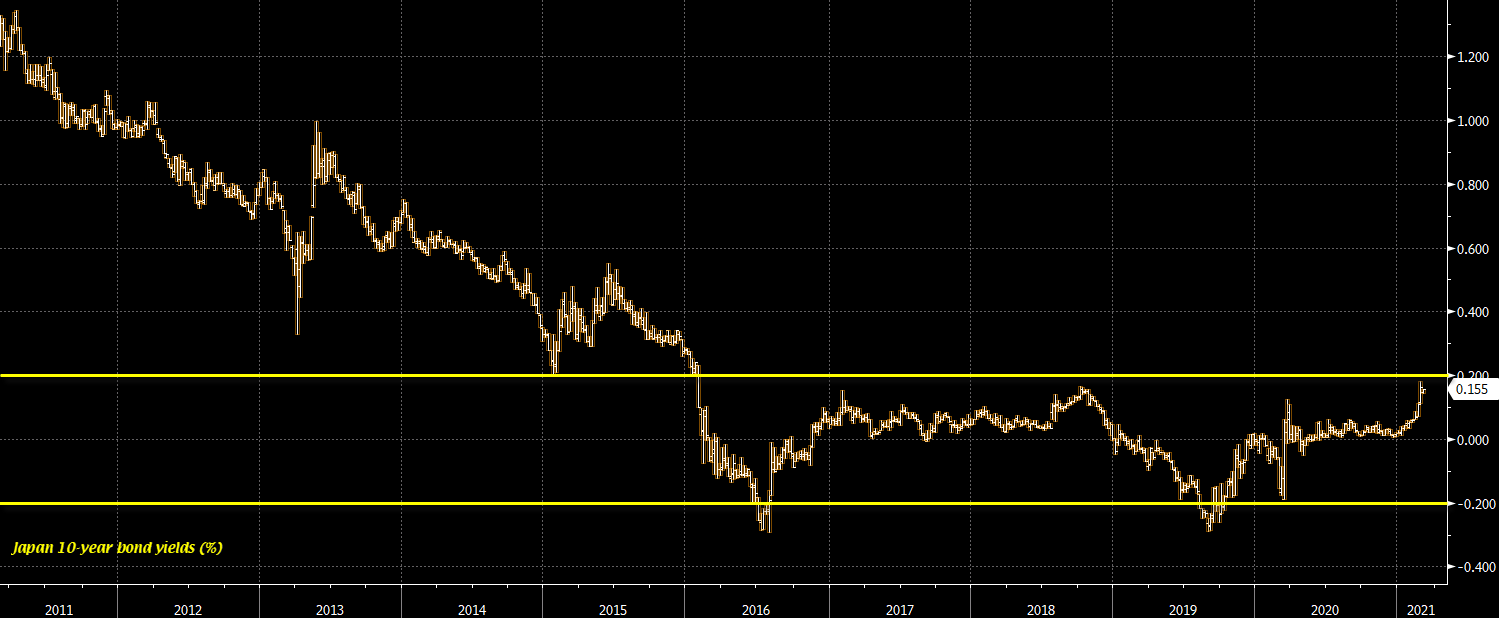Bloomberg reports on the matter
The report says that the BOJ is still prepared to defend its yield target range if bond yields rise too much ahead of their policy review later this month, and could even act before 10-year yields hit 0.20%, according to people familiar with the matter.

The BOJ doesn’t exactly have a preset level of when to enter the market as it depends on the pace of the moves, the level and main reasons behind such a surge in yields.
But this looks to just a bit of a warning after the absence of the BOJ on Friday when 10-year yields hit a five-year high of 0.175% left some quarters of the market wondering if they will sit on their hands until the policy review on 19 March.
The sources in the report say that the BOJ will not allow yields to hit 0.30% ahead of the review as that will raise doubts over YCC credibility. For some context, the BOJ has a rather loose rule about letting yields fluctuate 20 bps in and around 0%.
